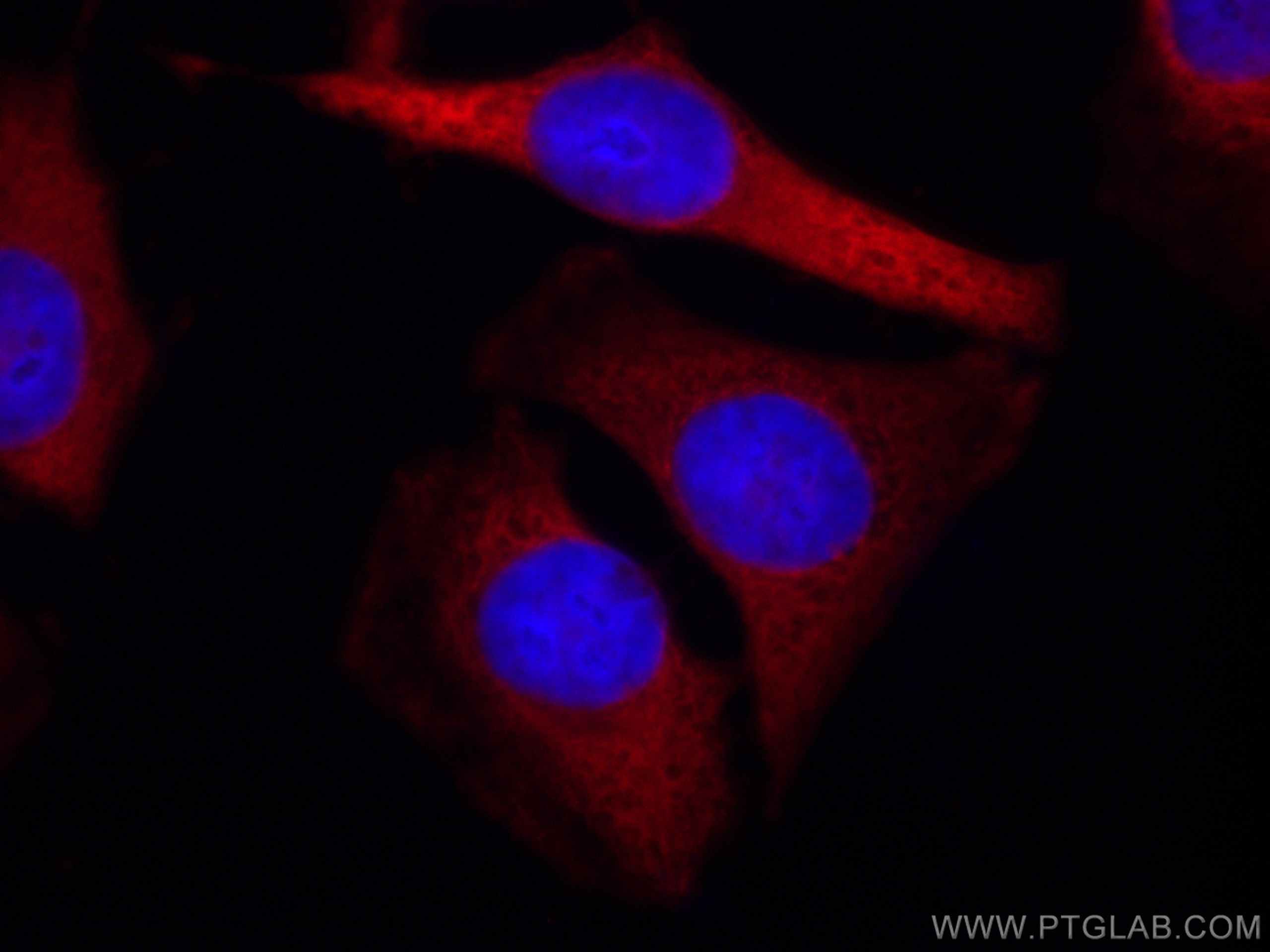Tested Applications
| Positive IF/ICC detected in | HeLa cells |
Recommended dilution
| Application | Dilution |
|---|---|
| Immunofluorescence (IF)/ICC | IF/ICC : 1:50-1:500 |
| It is recommended that this reagent should be titrated in each testing system to obtain optimal results. | |
| Sample-dependent, Check data in validation data gallery. | |
Product Information
CL594-67453 targets ALDOA in IF/ICC applications and shows reactivity with Human, Mouse, Rat samples.
| Tested Reactivity | Human, Mouse, Rat |
| Host / Isotype | Mouse / IgG1 |
| Class | Monoclonal |
| Type | Antibody |
| Immunogen | ALDOA fusion protein Ag17952 Predict reactive species |
| Full Name | aldolase A, fructose-bisphosphate |
| Calculated Molecular Weight | 39 kDa |
| Observed Molecular Weight | 39 kDa |
| GenBank Accession Number | BC016800 |
| Gene Symbol | ALDOA |
| Gene ID (NCBI) | 226 |
| RRID | AB_2920140 |
| Conjugate | CoraLite®594 Fluorescent Dye |
| Excitation/Emission Maxima Wavelengths | 588 nm / 604 nm |
| Form | Liquid |
| Purification Method | Protein G purification |
| UNIPROT ID | P04075 |
| Storage Buffer | PBS with 50% glycerol, 0.05% Proclin300, 0.5% BSA, pH 7.3. |
| Storage Conditions | Store at -20°C. Avoid exposure to light. Stable for one year after shipment. Aliquoting is unnecessary for -20oC storage. |
Background Information
ALDOA(Fructose-bisphosphate aldolase A) is also named as lung cancer antigen NY-LU-1,muscle-type aldolase,ALDA and belongs to the class I fructose-bisphosphate aldolase family.The ALDOA gene encodes a homotetrameric protein(PMID:14615364).It is found in skeletal muscle and red blood cells, and functions in glycolysis, promoting the reversible cleavage of FBP to triose phosphate, G-3-P and DHAP. ALDOA is upregulated in various cancers, including human lung squamous and renal cell carcinomas(PMID:19937139).
Protocols
| Product Specific Protocols | |
|---|---|
| IF protocol for CL594 ALDOA antibody CL594-67453 | Download protocol |
| Standard Protocols | |
|---|---|
| Click here to view our Standard Protocols |



